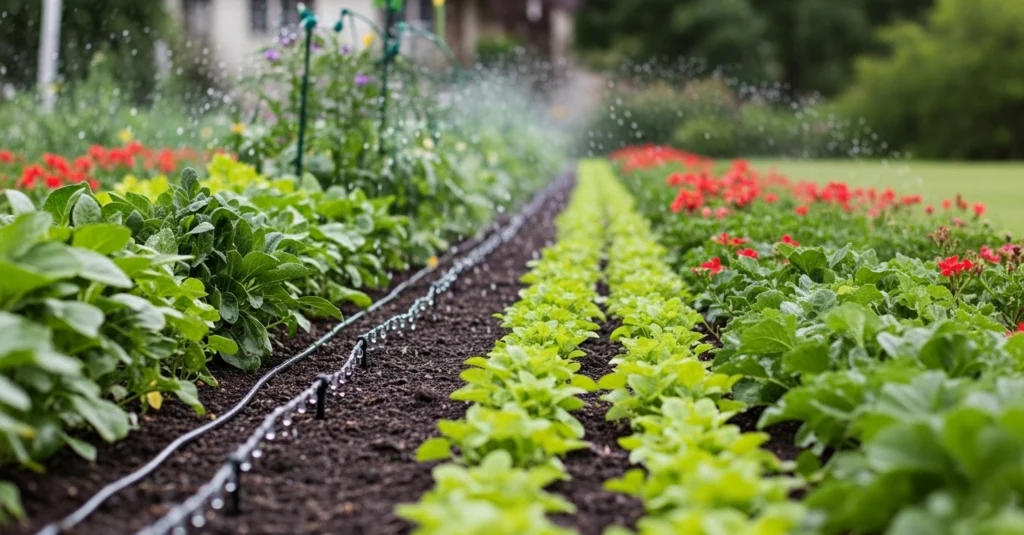For most farmers, water bills and wastage are major concerns. Traditional irrigation methods often lead to excess use of water, soil erosion, and reduced efficiency. The good news? Drip Irrigation Reduces Water Bills while ensuring your crops receive just the right amount of water.
In this comprehensive guide, we’ll explore how drip irrigation works, why it saves water, and how farmers can benefit from long-term savings. By the end, you’ll understand why partnering with a trusted drip irrigation supplier in Indore is the smart choice for sustainable farming.
Why Drip Irrigation Reduces Water Bills Effectively
Drip irrigation delivers water directly to the plant’s root zone, minimizing evaporation and runoff. Unlike flooding or sprinkler methods, it ensures that every drop counts.
- Precise water delivery prevents wastage.
- Less evaporation means more water stays in the soil.
- Lower energy use for pumping water over long distances.
This efficiency makes drip irrigation one of the most cost-effective agricultural investments.
How Drip Irrigation System Works
Key Components of a Drip Irrigation System
- Mainline and sub-main pipes – Distribute water across the field.
- Drip tape irrigation lines – Deliver water near the root zone.
- Emitters – Control water flow and pressure.
- Filters and valves – Keep the system clean and efficient.
By using these components together, farmers can reduce water wastage and save significantly on bills.
Benefits of Drip Irrigation in Long-Term Water Savings
1. Reduces Evaporation
Since water is delivered at the soil level, less is lost to the sun.
2. Controls Weed Growth
Drip irrigation prevents water from reaching unnecessary areas where weeds grow.
3. Improves Soil Health
The right moisture balance reduces erosion and keeps nutrients intact.
4. Saves Energy
Pumping less water over shorter periods means reduced electricity bills.
5. Increases Crop Yield
With consistent moisture, crops grow healthier and provide higher returns.
Real-World Applications of Drip Irrigation
Vegetable Farming
Farmers growing tomatoes, cucumbers, and chilies save up to 40% of water using drip tape irrigation.
Orchards and Vineyards
Drip irrigation ensures steady water flow to deep-rooted crops like mango, citrus, and grapes.
Field Crops
Crops like sugarcane and maize benefit from uniform watering without excess runoff.
Why Farmers in Indore Prefer Drip Irrigation
Indore and nearby regions face water scarcity challenges. That’s why many farmers trust drip irrigation suppliers in Indore for:
- High-quality drip tape irrigation systems.
- Durable materials that last multiple seasons.
- Local expertise to guide farmers on installation and maintenance.
- Quick availability of spare parts and service support.
Common Mistakes Farmers Make in Drip Irrigation
- Using the wrong type of drip tape for the crop.
- Not cleaning filters regularly.
- Installing pipes incorrectly, leading to leaks.
- Buying low-quality products from unverified sources.
Avoid these mistakes by working with trusted drip irrigation system suppliers in Indore.
Steps to Maximize Water Savings with Drip Irrigation
- Choose the right drip tape irrigation thickness for crop type.
- Regularly clean filters to avoid clogging.
- Inspect pipes and fittings to prevent leaks.
- Match emitter flow rate with soil type.
- Get professional installation advice from experts.
Long-Term Impact of Drip Irrigation on Farm Economics
Drip irrigation doesn’t just save water – it saves money. Lower water bills, reduced energy costs, and higher yields mean farmers see a strong return on investment. Over multiple crop seasons, these savings add up, making it a sustainable solution.
FAQ Section
Q1: How much water can drip irrigation save?
A: Farmers can save up to 40–60% water compared to traditional irrigation methods.
Q2: Does drip irrigation work for all crops?
A: Yes, it is suitable for vegetables, orchards, vineyards, and even field crops.
Q3: What is drip tape irrigation, and how does it help?
A: Drip tape irrigation uses thin pipes with emitters that deliver water directly to plant roots, reducing wastage.
Q4: Where can I find reliable drip irrigation suppliers in Indore?
A: Several reputed suppliers in Indore provide durable and affordable drip irrigation systems for all crop types.
Conclusion
Water is one of the most valuable resources in farming. By adopting modern irrigation techniques, farmers can ensure they use every drop wisely. Drip Irrigation Reduces Water Bills and promotes sustainable farming by saving water, reducing costs, and improving yields.
Farmers in Indore are already benefiting by working with local drip irrigation system suppliers. Now is the perfect time for you to take the next step toward smarter farming.
Looking for a reliable drip irrigation supplier in Indore?
We provide high-quality drip irrigation systems and drip tape irrigation solutions designed to save water and increase farm productivity. Contact us today and discover how drip irrigation reduces water bills while improving your crop yield!






